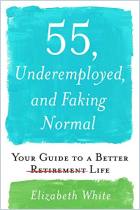In lively, engaging prose, New York Times correspondent John Schwartz explains family financial milestones: investing, buying a house, declaring bankruptcy, paying for education, enduring medical disasters, incurring debt, buying insurance, saving for retirement and writing a will. His interludes about his family’s financial struggles and successes make this enjoyable, educational reading for anyone who needs a financial road map, but doesn’t quite know where to start.
The key to a stable financial future is to start saving early.
Unexpected calamities can wreak financial havoc, but planning has no downside. Outlining your financial future now will set you up for a more comfortable retirement and relieve your anxiety. One-third of people in the United States struggle financially, and money is the number-one source of stress in Americans’ lives. For most people, just covering daily costs takes 75% of their income, up from only 50% a generation ago.
Start saving early. If you work for a company with a retirement savings plan, start making contributions. If your company has no plan, set up a savings account and divert funds into it every month. Pay down your credit cards.
Don’t try to beat the market when investing. Buy into indexed funds, which are reliable and charge low fees.
John Schwartz had no strategy when he set his financial course. He was lucky in that he had a well-paying job and an employer-supported retirement plan. More than half of Americans will not have saved enough to maintain their standard of living in retirement.
The typical American’s plan for ...
John Schwartz is a science correspondent for The New York Times and focuses on space travel, infrastructure, technology and climate change. He also writes a humor column in the investing section. He has been a reporter for The Washington Post and Newsweek.


















Comment on this summary or Start Discussion